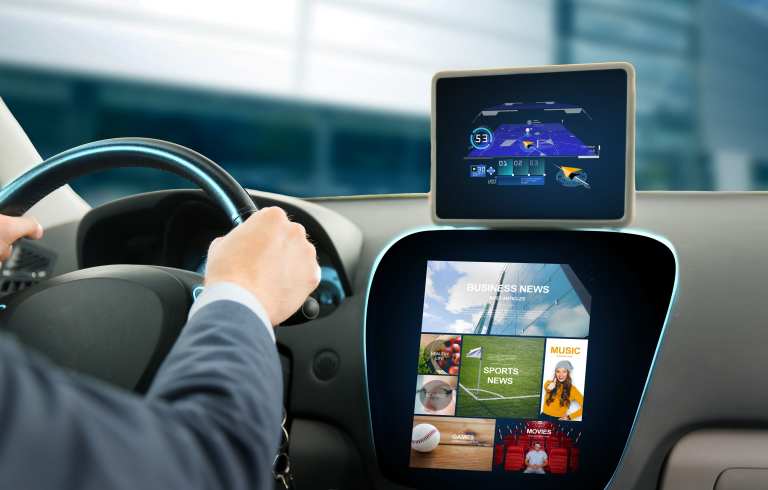Connected Vehicles Steer Retail To New Innovations

As a new decade approaches, retail is driving hard toward its future thanks to connected vehicles. And big players in commerce and payments are racing for position.
Not only are all the major automotive manufacturers deeply involved, but so are such players as Amazon and Google. In fact, in a recent PYMNTS interview, Dan Gittleman, CEO at automotive software supplier Xevo, and Brian Woods, the company’s CMO, spoke with Karen Webster about what’s to come as this ecosystem develops.
“When consumers get into the car, there is only one experience,” Gittleman said, referring to how software and platforms will work in the ideal connected vehicle experience — a seamless process that combines such functions as payments, commerce and navigation.
European Moves
That’s not all that’s happening.
European car manufacturer Skoda will be adding a virtual assistant to its vehicles, which will be accessible through vocal commands, according to a report by CNBC.
The Czech carmaker said the assistant will be activated by saying, “Okay, Laura.”
The proposed system will support a total of six languages and will do things like navigate routes and control the radio. The first iterations of the assistant will be available in the Kamiq city SUV and the smaller Scala. Skoda, which was launched in 1991 as an offshoot of the Volkswagen group, delivered about 1.25 million cars around the world last year.
Other car companies have also been experimenting with adding voice-activated virtual assistants. BMW has added an “intelligent personal assistant” to some of its cars, which can be activated by saying, “Hello, BMW,” to help with everything from temperature controls to tire pressure information.
“Voice is the ideal interaction tool in the vehicle,” said Jack Palmer, a senior connected car specialist at SBD Automotive. “If the lion’s share of commands from the driver can be inputted through virtual assistants rather than fiddling around with touchscreens and buttons, the current epidemic of driver distraction will be greatly mitigated. Automakers have realized this, and the race is on for them to integrate their own solutions or partner with consumer electronics companies such as Google and Amazon.”
View from China
Developments are also coming from China.
Chinese tech giant Tencent has said it will release a version of its ultra-popular WeChat app specifically for drivers to use in cars, according to a report by Reuters.
The company is teaming up with China carmaker China Chang’an Automobile Group on the function. WeChat is China’s most popular chat app, with upwards of a billion users. The app will be integrated into upcoming car models later this year.
The voice-activated app will allow drivers to send and receive messages while driving. It will also use Tencent’s proprietary mapping software.
As it aims to continue expanding its business to cover services from many different fields, Tencent has made a lot of moves in the automotive industry. The company recently announced a partnership with 21 carmakers, including BMW, Audi and others, to help with connecting cars.
BMW has recently been expanding into China and developing autonomous technology for cars, aiming to be at the forefront of the technology when the self-driving wave hits the mainstream. The company teamed up with Tencent for data computing and also a storage platform, because Chinese law says foreign companies can’t host Chinese data without a partnership with a local outfit.
Expect more innovation as the connected vehicle ecosystem grows.